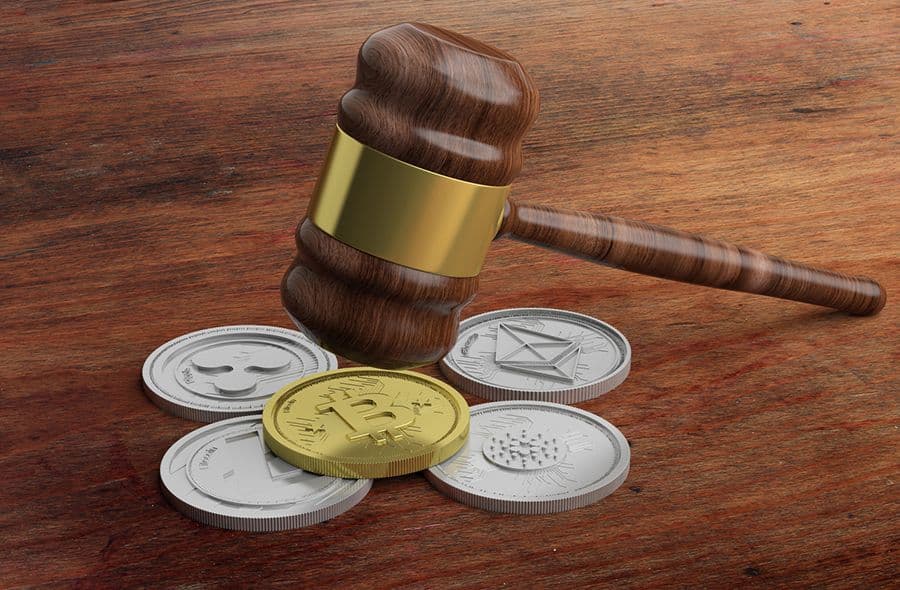Anyone who has ever had to grapple with the legal system (which let’s face it, is most of us at some point or other) will probably have found that it doesn’t tend to move all that quickly.
There’s a good number of reasons for this and you’d have to be an expert to fully understand them all, but a cynic would tell you that perhaps fundamentally there are just too many people in the system needing their cut. Too many middlemen.
This oversimplifies the matter to some degree, but it’s certainly true that any functioning legal system is by its nature an unwieldy machine, with a large number of constituent parts necessary to process and scrutinise the information it deals with.
Now, in common with a growing number of other sectors, the legal industry is facing a potential shakeup in the form of blockchain – the technology behind Bitcoin and other cryptocurrencies.
Smart Contract Solutions
Smart contracts - blockchain-encoded agreements which activate automatically when their stipulated conditions are agreed or broken – are skyrocketing in popularity as blockchain technology continues to flourish. Nick Szabo, the guru behind the idea of smart contracts, likens them in effect to a very simple vending machine: you insert your coin and the machine automatically dispenses you a can of coke. The insertion of the coin triggers the contract between you and the machine and when the machine dispenses the can, the contract has been fulfilled.
There’s a deal of simplification going on here, but the principle remains sound. The potential of smart contracts can be gauged in effect by this very simplicity – the agreement is executed quickly and straightforwardly, without the need for outside validation from third parties. The middleman is cut out.
By being written on a blockchain, a smart contract possesses the same immutability and transparency as its host platform. This gives them a reliability and a 'complete symmetry of information' which would render them unquestionably binding.
Implications for the Legal Industry
 The consequences for the legal industry along with many other fields are clear. With verification procedures built-in, the need for third parties to mediate in contractual issues is greatly diminished. For example, there would be no need for a contract’s signing to be witnessed by a notary, as the blockchain would record all aspects of the contract and its stipulations in an unalterable form. Any party’s attempt to break the contract’s terms would be countermanded by this clearly visible information. Paperwork and form filling could become obsolete and unnecessary.
The consequences for the legal industry along with many other fields are clear. With verification procedures built-in, the need for third parties to mediate in contractual issues is greatly diminished. For example, there would be no need for a contract’s signing to be witnessed by a notary, as the blockchain would record all aspects of the contract and its stipulations in an unalterable form. Any party’s attempt to break the contract’s terms would be countermanded by this clearly visible information. Paperwork and form filling could become obsolete and unnecessary.
Once encoded to a blockchain, the human element in a transaction (and with it much of the potential obfuscation or delay) is removed from the equation. The contracts essentially operate on an ‘if-then’ premise: If a certain amount of bitcoins are deposited, then an agreed product will be released in return. The timings of the deposit and the release can be specified and rendered transparent – any attempt by either party to alter these stipulations will be visible across the blockchain. Any disputation would be nullified by the terms of the contract.
Here in the UK, purchasing property is a notoriously byzantine procedure with the process often going on for months as contracts and paperwork get tied up with solicitors. This is obviously designed in part to protect the parties involved but all too often becomes a means for various legal professionals to take their cut. With smart contracts, this process could be simplified and streamlined, whilst still providing protection for buyers and sellers alike. With the protocols of a smart contract both inviolable and transparent, the need for time-consuming, costly interventions by solicitors and conveyancers would be far less likely. The whole process could be made quicker and safer for all concerned.
Still a Need for Lawyers
If all this raises the spectre of mass redundancies across the legal profession then some perspective is needed. The precise structuring and contents of smart contracts will still need to be decided upon by legal professionals and a regulatory framework of some kind will have to be in place to bring them into line with the legal systems of different countries. Users will still need legal advice to ensure that the contents of smart contracts are indeed fair to all concerned.
Nevertheless, the potential applications of smart contracts are starting to be explored in depth. There are still plenty of legal avenues to be explored before smart contracts become ubiquitous and the current legal system will not be transformed overnight. But the potential is there and who knows – in the not-too-distant future, maybe our dealings with the legal system may not be so tortuous after all.



